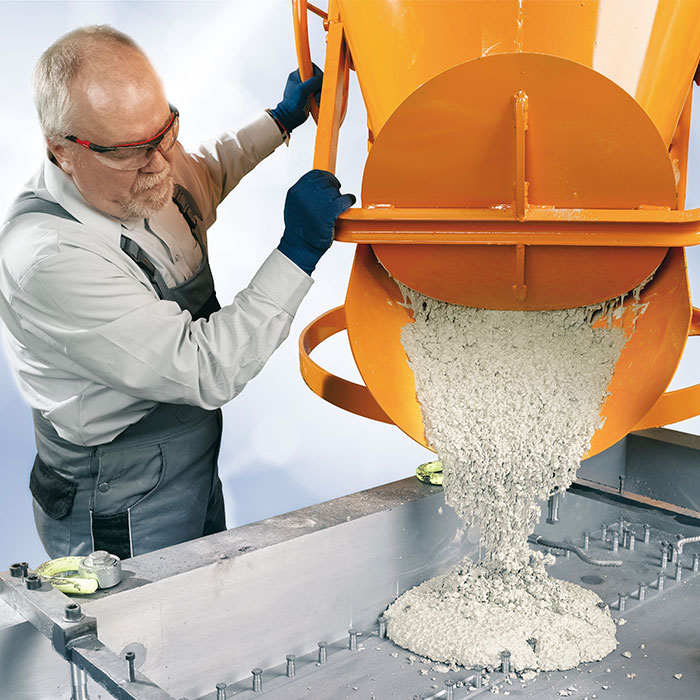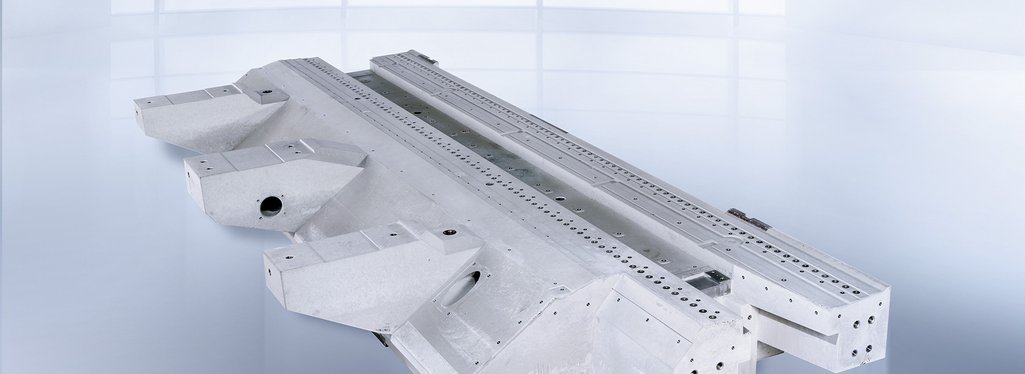
It’s all in the name
Ultra-high performance concrete – modesty definitely didn’t play a role when this material was named. But that’s okay because it lives up to its description. And that’s why the newly developed EPUDUR premium concrete from RAMPF Machine Systems is the go-to material for large, heavy machine beds and machine bed components in highly dynamic mechanical engineering applications. These are optimized according to requirements as well as casting technology and are now being produced directly at the company’s head office in Wangen, Germany.
When asked about the secret behind his long-lasting success, a renowned gourmet chef replied that his trade was ultimately based on three pillars. The first was the ingredients, which he always obtained from the same suppliers, paying attention to consistent quality. The second was the recipe. He put together the ingredients of his dishes by continually carrying out the same steps with painstaking effort. The third pillar was the process and know-how. The perfect choreography of boiling, cooking, and resting times, he said, ensured that his creations were always served bursting with flavor and quality.
Implementing market requirements in new formulations and solutions
This story serves as a metaphor, yet there are comparisons to be drawn with the everyday activities at RAMPF Machine Systems. Although its products are not edible, mechanical engineering companies quite literally build upon the top quality that RAMPF creates using the ideal base materials. The “chefs” at RAMPF need to have a consistently good, reliable command of the process.

Our machine bed components are in demand wherever the focus is on high vibration damping, compressive strength, and maximum precision
explains Dirk Haumann, Managing Director of RAMPF Machine Systems.
Just a few decades ago, this almost exclusively referred to gray cast iron solutions. Today, however, system components made with epoxy resin-bonded mineral casting often present the better alternative.
But why ultra-high performance concrete (UHPC)? Comparable to an innovative cook, RAMPF engineers constantly ask themselves how they can implement changed market requirements in new formulations and solutions.
A cost-effective premium product
“Strictly speaking, the best machine bed material doesn’t exist, it always depends on the job at hand. Each material has its strengths and weaknesses – no formulation is too good to be improved,” says Dr. Thomas Abel, Director of Laboratory at RAMPF Machine Systems. For many years now, the company has been testing high-quality premium concrete solutions, amongst others, as cost-effective alternatives to the standard materials currently on offer.
RAMPF is breaking new ground with the newly developed ultra-high performance concrete EPUDUR, using on state-of-the-art nanotechnology. In addition to a high-quality premium concrete, selected ingredients such as gritting material, sand, and minerals are used in finely tuned dosages. High-performance flow agents ensure self-compacting, no additional vibration energy is required. Only a small amount of water has to be added as a chemical reactant.
The result is a viscous material whose pore volume is significantly lower than that of standard construction concrete.

In its cured state, EPUDUR scores top marks in terms of strength, modulus of elasticity, and damping properties, making this premium concrete an economical competitor to previous materials
Abel points out.
Owing to its high dynamic stability, system solutions made with EPUDUR are the preferred choice when heavy weight and highly dynamic stress call for maximum precision.
This is the case, for example, with beds and components of machine tools for milling, turning, grinding, and eroding. Or as standard bases for power machines subject to high dynamic loads, such as motors, generators, turbines, and centrifuges.
In the grand scheme of things, the mechanical indicators are comparable to or sometimes even better than those of the mineral casting materials bonded with reactive resin that have proven popular over the years.
“EPUDUR, however, offers advantages and design options on top of this that ultimately translate into lower costs,” Haumann explains. The EPUDUR manufacturing process, for instance, doesn’t involve any type of technical compaction. The raw mixture automatically thickens free from pores and cavities and doesn’t show any shrinkage after curing. It is relatively easy to integrate cast components such as screw stays, loading elements, pipes, and hoses. Formwork can be created with steel, plastic, or even wooden reinforcements.
Recycled as construction materials
When it comes to large, heavy, and complex components, EPUDUR solutions usually perform better than the gray cast iron or polymer concrete variants. “In addition, ultra-high performance concrete is non-flammable and very resistant to aging at both low and high temperatures,” says Abel, adding: “Polymer- and cement-based RAMPF casting materials exhibit outstanding ecological credentials. Once you’re done with it, you can recycle the material as Class 1, non-hazardous construction waste.”
After many years of testing and optimization, RAMPF is optimistic that EPUDUR has got what it takes to become the material of the future. As Abel explains: “Since we understand exactly how the process works, we map everything ourselves, ensuring process reliability and consistently high quality for our customers.”
Using tried-and-tested mixing technology from KNIELE, the Wangen plant near Göppingen can currently manufacture system solutions for series of up to 10 tons. The goal is to double this capacity in the near future.
RAMPF will continue to produce customer-specific machine beds and machine bed components with the material that best suits the requirements in each specific situation. Nevertheless, the proportion of EPUDUR solutions, say Haumann and Abel in unison, will increase significantly.
Interesting articles
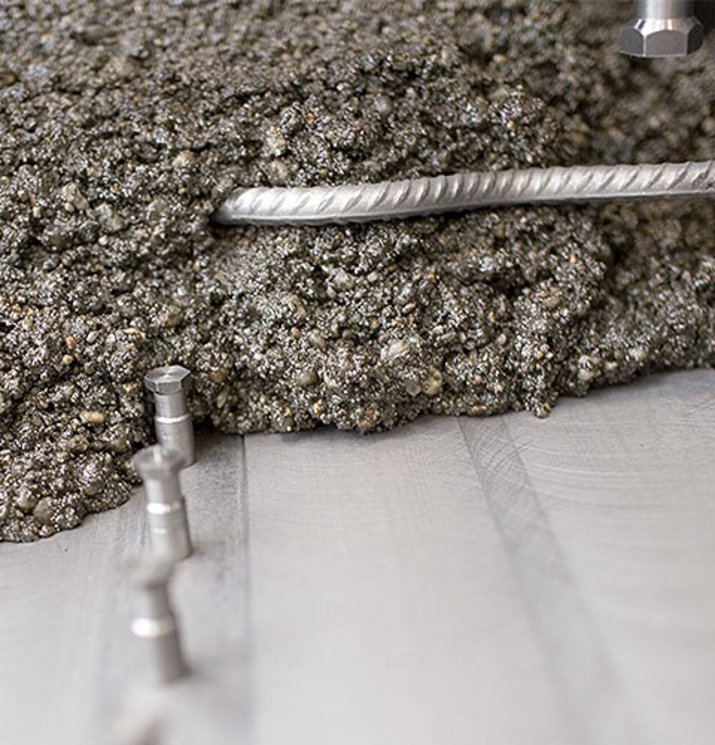
Mineral Casting – A Brief History
Whether as a solid basis for machine bed components or as a vibration-damping machine base – mineral casting is an indispensable part of mechanical engineering.
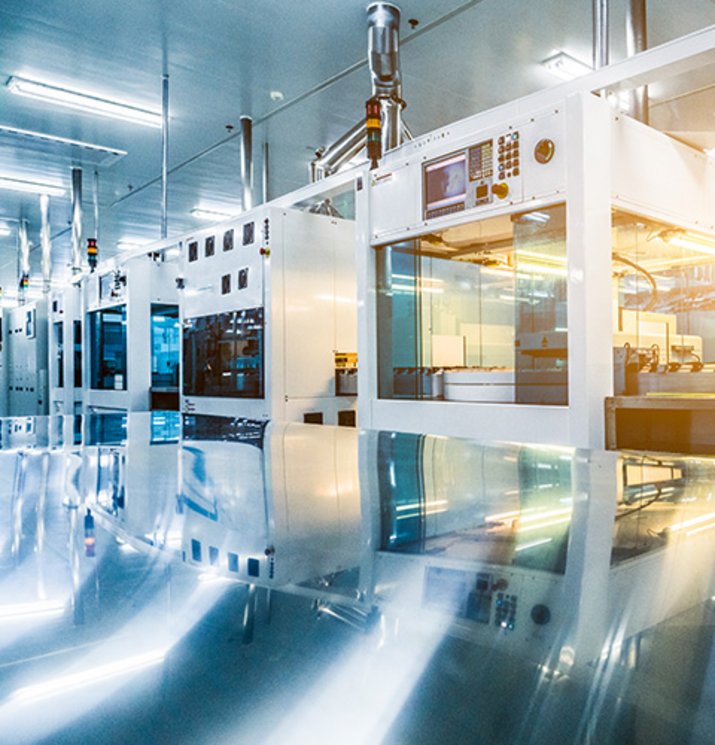
The factory of the future
EPUMENT mineral casting provides the vibration-damping basis for IoT.
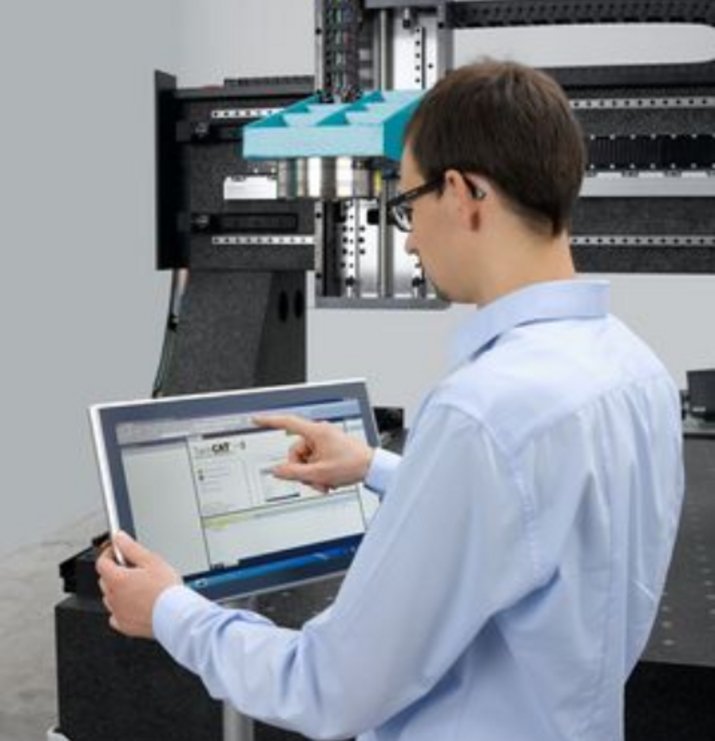
Industry 4.0 – when machine beds “have their say”
Ever faster, ever more dynamic, ever more precise – cutting-edge production technology has to meet requirements that are increasing rapidly.

